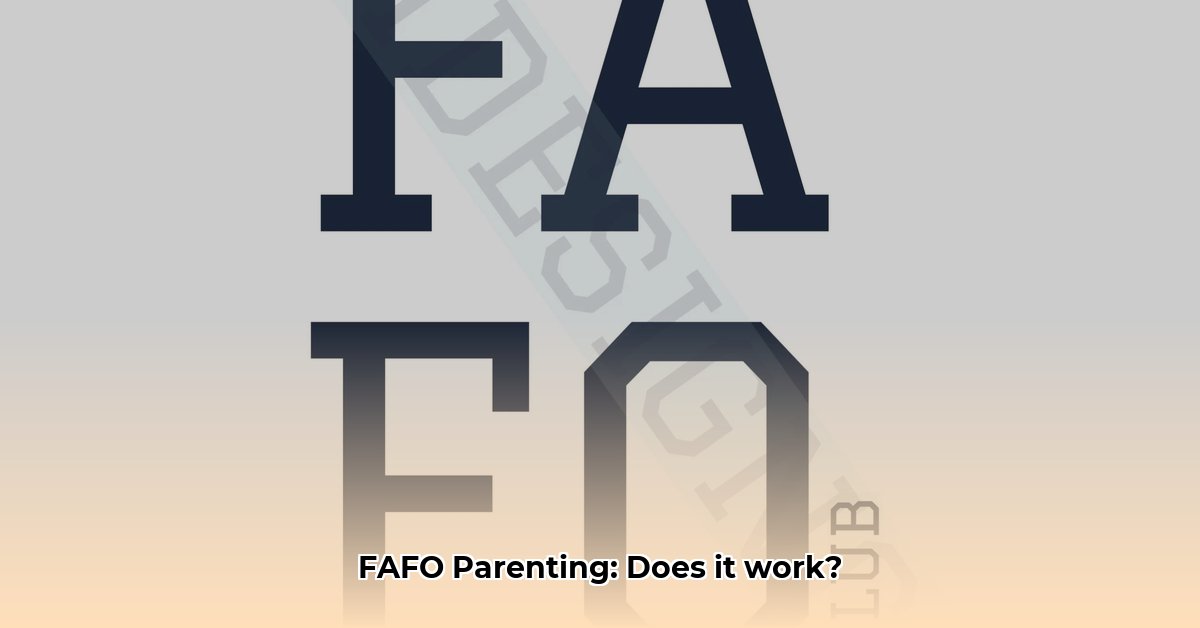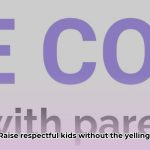FAFO parenting—short for “fuck around and find out”—has sparked conversations about its role in raising responsible kids. This comprehensive guide explores what FAFO parenting entails, its potential benefits and drawbacks, and how to implement it effectively within safe boundaries. We’ll discuss how this social media-born concept translates into real-world parenting, offering a nuanced perspective that considers its relationship to other parenting styles and addresses ethical concerns.
Understanding FAFO: More Than Just an Acronym
FAFO parenting centers around the principle of natural consequences: letting children experience the direct results of their actions. It’s a shift from constantly rescuing children from mistakes towards guiding them through real-life experiences. This approach encourages kids to connect actions with outcomes, fostering responsibility and self-reliance. It’s important to note that FAFO parenting is not about neglect or intentionally putting children in harm’s way. Rather, it’s about creating a safe space for them to experiment, make choices, and learn from the natural ripple effects within established boundaries.
The Principles of FAFO: Natural Consequences Explained
At its core, FAFO parenting distinguishes between natural consequences and punishments. Punishments are adult-imposed penalties, while natural consequences are the organic results of a child’s choices. For example, forgetting a lunchbox leads to hunger—a natural consequence. This direct experience can be a more powerful teacher than lectures or reprimands.
There’s also a middle ground: logical consequences. These are parent-guided but directly related to the misbehavior. Drawing on the wall might lead to the logical consequence of cleaning the wall. This offers a spectrum of responses, from the purely natural to the more directed logical consequence, allowing parents to tailor their approach to the situation.
Benefits and Drawbacks: Is FAFO Right for Your Family?
Like any parenting style, FAFO has its potential advantages and disadvantages. Careful consideration of these is crucial in determining if it aligns with your family’s values and your child’s individual needs.
Potential Benefits:
- Increased Independence: Children learn to rely on themselves and take ownership of their choices.
- Improved Problem-Solving: Facing challenges encourages creative thinking and resourcefulness.
- Greater Resilience: Experiencing setbacks, big or small, helps children develop coping mechanisms and bounce back from adversity.
- Reduced Power Struggles: Shifting from external control to internal motivation can minimize conflicts.
Potential Drawbacks:
- Risk of Unforeseen Outcomes: Natural consequences can be unpredictable, and parental judgment is essential to ensure safety.
- Potential for Emotional Distress: Negative experiences require empathetic guidance to prevent overwhelming children.
- Not Universally Applicable: FAFO may not be suitable for all children, particularly those with special needs or sensitivities.
- Risk of Misinterpretation: Others may misinterpret FAFO as neglectful, requiring parents to clearly communicate their approach.
A Step-by-Step Guide to Implementing FAFO Parenting
- Establish Clear Expectations: Communicate family rules and responsibilities openly and honestly.
- Anticipate Natural Consequences: Consider the likely outcomes of a child’s actions before they occur.
- Prioritize Safety: Intervene immediately if a situation poses a risk to your child’s well-being. Natural consequences should never compromise safety.
- Navigate Resistance with Empathy: Listen to your child’s concerns, validate their feelings, and explain your reasoning with kindness and firmness.
- Reflect and Adjust: Continuously evaluate your approach, adapting it to your child’s responses and your family’s dynamics.
FAFO Across the Ages: Adapting to Developmental Stages
FAFO parenting is not a one-size-fits-all approach. The application should be tailored to the child’s age and maturity level. A toddler’s experience with natural consequences might involve learning that spilling juice leads to a sticky mess. A teenager, on the other hand, might face the impact of poor time management on academic performance.
Ethical Considerations: Balancing Freedom and Safety
FAFO parenting is not about letting children “sink or swim” without guidance. It’s about providing a supportive environment where they can learn and grow from their experiences within safe boundaries. Parental judgment is crucial in distinguishing between teachable moments and situations requiring immediate intervention.
FAFO in Context: Comparing Parenting Styles
FAFO shares similarities with authoritative parenting, emphasizing high expectations and clear consequences. However, FAFO leans more towards natural consequences as teaching tools, while authoritative parenting often incorporates more direct discipline. It differs significantly from helicopter parenting (overprotective) and permissive parenting (lenient). Current research suggests that effective parenting often draws from various philosophies, adapting to individual family and child needs.
FAFO and Real-World Challenges: Addressing Common Issues
How does FAFO parenting address common challenges like homework refusal or sibling conflicts? It provides a framework for navigating these situations by focusing on the natural consequences of actions within a safe and supportive environment. For example, a child refusing to do homework might experience the natural consequence of a lower grade. However, parental support is still vital in helping the child understand the connection between actions and outcomes and develop better study habits.
The Evolving Landscape of FAFO Parenting
FAFO parenting, as a term and philosophy, is still evolving. There’s no definitive research specifically on “FAFO,” but the principles it embodies align with established theories of child development, particularly the importance of experiential learning. Some theorists suggest that natural consequences can be highly effective, while others caution against a rigid application. Ongoing research explores the nuances of different parenting techniques, and the most effective approach likely varies based on individual family dynamics and cultural contexts. Remember, parenting is a journey of continuous learning and adaptation. FAFO, when applied thoughtfully and within safe boundaries, can be a valuable tool in raising responsible and resilient children.
- 200+ Co-Parenting Quotes: Inspiration, Humor, and Wisdom for Every Stage - February 5, 2025
- Parenting Teens with Love and Logic: A Practical Guide to Raising Responsible Adults - February 5, 2025
- Indiana Parenting Time Guidelines PDF (2024): Download & Understand - February 4, 2025















